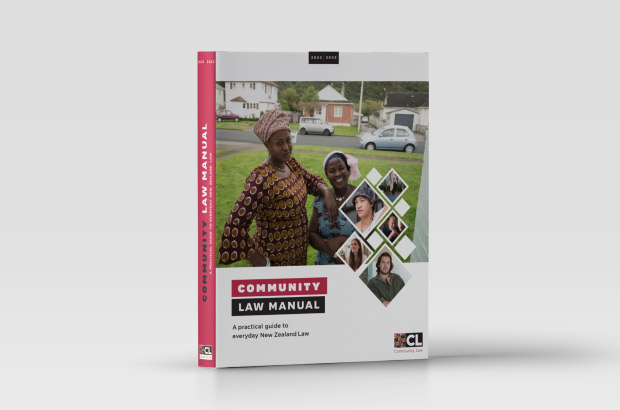“Maintenance”: Financial support from your ex-partner
What is maintenance?
Family Proceedings Act 1980, s 2
When a relationship ends, the law encourages both parties to become financially independent of each other as soon as possible. In some situations, however, one partner may be required to financially assist the other to support them for a period. This is called “maintenance”.
Maintenance means “the provision of money, property and services”.
Maintenance during or after the end of a marriage or civil union
Family Proceedings Act 1980, ss 63, 64
During a marriage or civil union, during separation, and for a reasonable period after a marriage or civil union is dissolved, a partner (the maintenance payer) might be responsible to maintain the other party (the claimant). This maintenance only applies if the claimant can’t meet all or part of their reasonable needs depending on:
- the claimant’s ability to become self-supporting, because of:
- the division of functions within the relationship when the parties lived together
- the likely earning capacity of each party
- any other relevant circumstances
- the care arrangements for any dependent children of the relationship
- the standard of living of the parties while they lived together
- the fact that the claimant is undertaking a reasonable period of education or training to increase their earning capacity or to reduce or eliminate the need for maintenance, and it would be unfair for the claimant to have to meet all their reasonable needs immediately because of:
- the effects of the division of functions within the relationship on the claimant’s earning potential, or
- the effects of childcare arrangements on the claimant’s earning potential, or
- the claimant having previously maintained the maintenance payer, wholly or partly, during a period of education or training.
Maintenance after the end of a de facto relationship
Family Proceedings Act 1980, ss 64, 66, 70B
The responsibilities and criteria for maintaining a de facto partner are the same as for a spouse or civil union partner, except the responsibility is to maintain a de facto partner at the end of the relationship only, not during the relationship.
If the de facto relationship has lasted less than three years, a Maintenance Order can’t be made unless, either:
- there is a child of the de facto relationship, or
- the de facto partner has made a substantial contribution to the de facto relationship, and
- the court is satisfied that not making the order would result in serious injustice (be very unfair) to the claimant partner.
Dividing relationship property and ordering maintenance is a case-by-case decision, because everyone’s contributions to relationships look different.
If someone contributed negatively to a relationship (for example, stole money from your shared account), the judge will take this into account when deciding what is “fair”. The judge may decide not to order any maintenance if it would be unjust (the law uses the phrase “repugnant to justice”).
Temporary (“interim”) maintenance
Family Proceedings Act 1980, s 82
You can apply for temporary or interim maintenance for up to six months to cover your reasonable needs, until the Family Court makes a decision about your application for ongoing maintenance. The process for getting interim maintenance can be relatively fast and it can be a useful stop-gap measure.
How long will maintenance be paid for?
Family Proceedings Act 1980, s 64A
Generally maintenance will only be granted for a time period that is reasonable in the circumstances of the particular case. Within that time period, you are expected to assume responsibility for meeting your own needs.
In some situations, maintenance may continue to be paid if it’s necessary and reasonable because of:
- your ages
- the length of the relationship
- the claimant’s ability to become self-supporting, considering:
- the division of functions within the relationship when you lived together
- the likely earning capacity of both of you
- the care arrangements for any minor or dependent children of the relationship
- any other relevant circumstances.
What happens if the claimant gets a new partner?
Family Proceedings Act 1980, s 70A
Any maintenance obligations will end if the claimant enters a new marriage, civil union or de facto relationship with someone else.
How much maintenance will be paid?
Family Proceedings Act 1980, ss 65, 66
The amount of maintenance will depend on:
- how much money you both have, including potential earning capacity and any value gained from relationship property division, and
- your reasonable needs, keeping in mind the standard of living you had when living together, and
- whether the maintenance payer is supporting any other person, and
- your financial and other responsibilities, and
- any other relevant circumstances.
How will maintenance be paid?
Family Proceedings Act 1980, ss 69, 70
The court can make an order requiring maintenance to be paid in the form of a lump sum or periodic payments.
Can a person get maintenance and a welfare benefit?
Family Proceedings Act 1980, s 62 Social Security Act 1964, s 84A
The fact that the claimant is receiving a benefit from Work and Income does not take away or limit the liability of the maintenance payer to pay maintenance. The amount of benefit the applicant is receiving may be reduced if the amount of maintenance is above a certain level.


